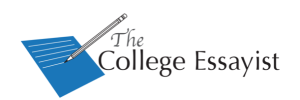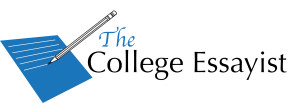Recently, I interviewed with a non-profit for a post-graduation teaching position. As an English major with an extensive history of mentoring/tutoring young children, students with disabilities, and refugees in both affluent and low-income communities, teaching for this company only seemed natural. Then, the day after I acquired all my various references and recommendations, I received an email thanking me for my time, though I would not move on to the final stage of interviews. Part of me was devastated; Everything in my life seemed to lead up to an opportunity like this. The other half wrestled with the idea that maybe there was someone better-that this rejection, on no part, reflected my past achievements or potential.
Looking back now, I knew all along that I would not receive an offer. I knew as I was filling out the online questionnaire, while crafting essays, and during the first few interviews that everything I was saying sabotaged my chances of getting the job. Yet, at the time I thought I was staying true to myself. They would appreciate a brutally honest candidate, I told myself. At least they should.
Now what does this anecdote have anything to do with college admissions essays, you ask? For those of you dead set on a particular school, this is what can happen when you submit the experimental essay. I italicize the phrase because the experimental essay is truly a thing. When you're writing it, you think of it as an act of boldness, assuming absolutely everyone else will turn in a conventional I'm great, blah blah blah essay. If done correctly, you believe the experimental essay has the potential to reveal your inner Salinger (or Hemingway or Faulkner. Whatever you please.) Basically, you feel like a college application pioneer. The reality is, many many many many of your peers will likewise try to emphasize their non-conformity. It's like the hipster of all college essays. If you refuse to admit it's an experimental essay, it probably is.
The experimental essay, takes on many forms. In my case, it has too often been the "I'm so introspective and just the right amount of cynical," too-honest, but not TMI essay. Let me give you an example:
Prompt 1: Describe something new that you bring to the table.
I hate these prompts. This question nearly asks for exaggerated answers. Many people understand that they do not possess an entirely unique skill set. So, oblivious, slightly cynical, profound-writer me would have honestly answered this question with something to the extent of: "I know I cannot bring anything new to the table. There are few precedents which have yet to be established. Therefore it is my understanding of my ordinariness that paradoxically makes me unique." Of course I still truly believe this today, but if presented the same prompt tomorrow in class, I would undoubtedly respond differently.
Why? I didn't answer the question the desired way. If a college asks you about unique qualities you have, talk about how unique you are. Unfortunately, the questions are worded in such a vague way that you could technically answer a number of different ways. The same holds true for interviews. During my most recent interviews, the interviewer had to incessantly reword the question so I might focus on the information she wanted to receive. The problem is, interviewers and colleges are not always straightforward about the answers they want. Otherwise, applicants would all answer in the same, expected way. You, as the applicant, have to be smarter than the application, and smarter than your inner slightly-cynical, hipster writing voice. There is nothing wrong with writing an essay which you feel is slightly conventional. That means it is safe, true and tried, and unoffensive. It is still possible to highlight originality, uniqueness, determination, and a number of other qualities without abandoning traditional essay form.
Now, the experimental essay, is not bad, per se. I believe I submitted at least one experimental essay to each of the schools I applied to and I was accepted to a majority of those universities. However, you need to be careful with which essays you experiment with. If a college gives you the option of submitting 3 essays, with one essay being optional, take advantage of the optional essay to experiment with language and form. Likely, the remaining 2 essays are required because they touch upon values which are important to that university. Those essays should be used to advertise yourself as a good fit for the school. The final essay might indicate additional passion for a specific subject or your potential for growth even after college (because all schools want distinguished alumni.)
In summary: the experimental essay is not for everyone. If you decide to write an experimental essay, do so for additional optional essays or portfolios and have someone revise to make sure you don't sound ridiculous. Otherwise, the conventional essay has allowed numerous students admission into their top schools.
The essay is just one part of the application. An experimental essay will not pull an entire application up.
Some schools are not searching for students with radically profound views. Consider the community/environment of the university.








